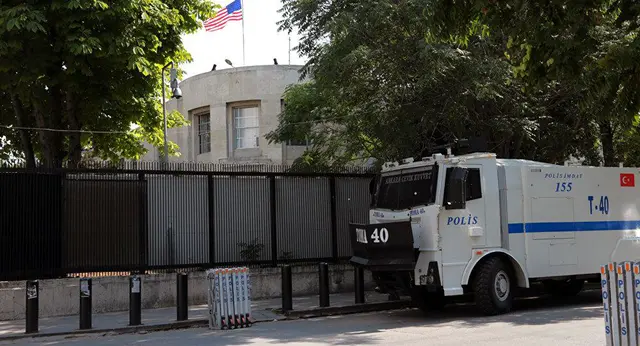On Friday, former Thai Prime Minister Yingluck Shinawatra heared the verdict in her trial over allegedly neglecting management of a massive rice subsidy plan. She oversaw the rice subsidy during her government, which was deposed by the Thai military in 2014. The verdict could trigger new unrest in Thailand, which has been relatively calm for the past year.
Yingluck, the younger sister of former Prime Minister Thaksin Shinawatra, is the most visible symbol of the Thaksinite Puea Thai party who still remains in Thailand. (Thaksin lives in exile, and no other Puea Thai leader has the name recognition of Yingluck.) Since the 2014 coup, Yingluck has been living a very curtailed life, but she has managed to remain in the public eye. She has done so by welcoming supporters at her house for nonpolitical gatherings that were then shared on social media, continuing to speak to the public via social media and her trial statements, and generally serving as a rallying point for Puea Thai supporters in the midst of three-plus years of military rule.
Over the past year, the military has continued its campaign to crush dissent, but at the same time a veneer of calm has descended over Thailand—and not only because of the harsh repression. To be sure, the junta continues to severely restrict freedoms, going far beyond the actions of Thai military leaders in recent decades. Most recently, the authorities this month announced charges against a group of participants in a major academic conference in Chiang Mai, claiming that they violated a prohibition on public assembly. Their crime? New Mandala reported that it consisted of:
“put[ting] up signs reading ‘This is an academic forum, not a military camp’ on the wall of a seminar room of the Chiang Mai International Exhibition and Convention Center during the Thai Studies conference, and [taking] photos with the signs.”
Yet at the same time, the death of King Bhumibhol last year, the period of post-Bhumibhol mourning, the passage of a new constitution in 2016, and the expectations of elections in 2018 have combined to tamp down antigovernment sentiment. Opponents of the junta may hope that the military will finally give way in 2018, although the timeline for an actual election remains uncertain. Still, some Puea Thai figures may believe that encouraging large-scale protest is not wise at this time, given that the party seems poised to win any upcoming election. As Shawn Crispin has noted in Asia Times, the government’s own internal polls have shown that Puea Thai would likely win the most seats in the lower house of Parliament, though the new constitution is designed to make it very difficult for any party, including Puea Thai, to win a majority. Still, it is not out of the question that Puea Thai could perform so well, even in the new system created by the 2016 constitution, that it could win an absolute majority.
A verdict that sends Yingluck to jail—rather than a not guilty verdict or a guilty verdict with some kind of suspended sentence—could actually help push Puea Thai toward that majority. A guilty verdict with jail time could lead to renewed public protests in Bangkok and the north and northeast, the heartland of Puea Thai backers. Even in the current climate of intense repression, the party’s core supporters have been active. Puea Thai backers have organized outside the Yingluck courthouse, and the junta has taken extensive preparations for larger unrest after the court’s decision. The junta has even threatened anyone who drives Yingluck supporters to the court. It also has reportedly mobilized thousands of police men and women to stand guard outside the trial venue.
Indeed, a guilty verdict and jail time, issued in a country under military rule and for a charge that seems like a political prosecution to many Puea Thai supporters, would probably make Yingluck an even more sympathetic public figure. A not guilty verdict, meanwhile, would anger core junta backers and perhaps the top generals themselves; in the minds of the junta’s pro-military/royalist supporters, a not guilty verdict might make the junta look weak. As The Nation reported, the junta seems to understand the possibility of Yingluck looking like a martyr, noting that the military hoped that the former prime minister would flee the country rather than face the verdict.
The junta’s desire not to see Yingluck made into a martyr may result in the court choosing a middle ground verdict, like finding Yingluck guilty but suspending her sentence. Such a middle path might keep the uneasy peace in Thailand that has existed since the king’s death last year, but the peace cannot hold indefinitely. The junta cannot postpone an election forever, and its favored parties will have difficulty defending the army’s record during its three-plus years running Thailand. The country’s economy has continued to stagnate, and decisions on infrastructure, the education system, and other important issues have remained deadlocked. The Yingluck trial has not proven a rally point for the junta, which is why the military may have wanted the former prime minister to simply leave the country.
Joshua Kurlantzick, Senior Fellow for Southeast Asia
This article
is adapted from cfr, and is not what APD stands for.
(CFR)
 简体中文
简体中文

